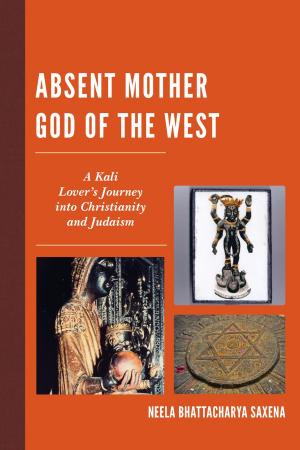Levinas Faces Biblical Figures
Nonfiction, Religion & Spirituality, Philosophy, Aesthetics, Modern, Religious| Author: | Ephraim Meir, Edna Langenthal, Gary D. Mole, Elisabeth Goldwyn, Catherine Chalier, Eli Schonfeld, Michal Ben-Naftali, Richard A. Cohen, Hanoch Ben-Pazi, Tamar Abramov | ISBN: | 9780739182833 |
| Publisher: | Lexington Books | Publication: | March 20, 2014 |
| Imprint: | Lexington Books | Language: | English |
| Author: | Ephraim Meir, Edna Langenthal, Gary D. Mole, Elisabeth Goldwyn, Catherine Chalier, Eli Schonfeld, Michal Ben-Naftali, Richard A. Cohen, Hanoch Ben-Pazi, Tamar Abramov |
| ISBN: | 9780739182833 |
| Publisher: | Lexington Books |
| Publication: | March 20, 2014 |
| Imprint: | Lexington Books |
| Language: | English |
The book offers new insights on the opening up of Levinas's thought and biblical stories to one another; it considers the ways in which Levinas can open up the biblical text to requestioning, and how the biblical text can inform our reading of Levinas. Setting up in dialogue the heteronomic texts – the narrative texts of the bible and Levinas's philosophical texts – allows an enforced and renewed understanding of both. The examination of these issues is pursued from diverse perspectives and disciplines, probing the role biblical figures play in Levinas's thought and the manner by which to approach them. Do the biblical allusions serve in Levinas's thought merely as a rhetorical and literary device, as illustrations of his ideas, or perhaps they have a deeper philosophical meaning, which contributes to his project in general? Do the references to biblical figures work in Levinas's philosophy in a way that other literary figures are incapable of, and how do these references comply with his conflicted attitude towards literature?
The book offers new insights on the opening up of Levinas's thought and biblical stories to one another; it considers the ways in which Levinas can open up the biblical text to requestioning, and how the biblical text can inform our reading of Levinas. Setting up in dialogue the heteronomic texts – the narrative texts of the bible and Levinas's philosophical texts – allows an enforced and renewed understanding of both. The examination of these issues is pursued from diverse perspectives and disciplines, probing the role biblical figures play in Levinas's thought and the manner by which to approach them. Do the biblical allusions serve in Levinas's thought merely as a rhetorical and literary device, as illustrations of his ideas, or perhaps they have a deeper philosophical meaning, which contributes to his project in general? Do the references to biblical figures work in Levinas's philosophy in a way that other literary figures are incapable of, and how do these references comply with his conflicted attitude towards literature?















